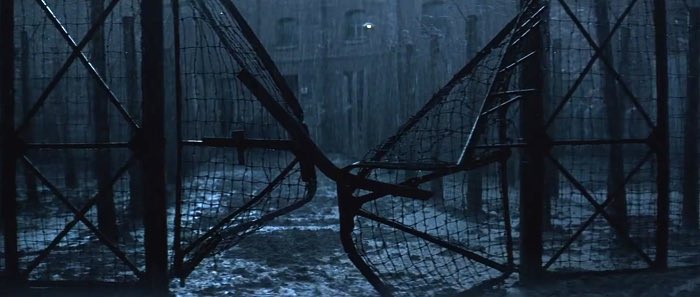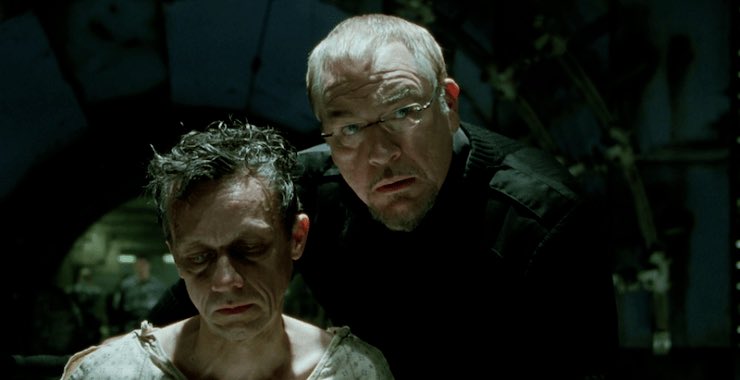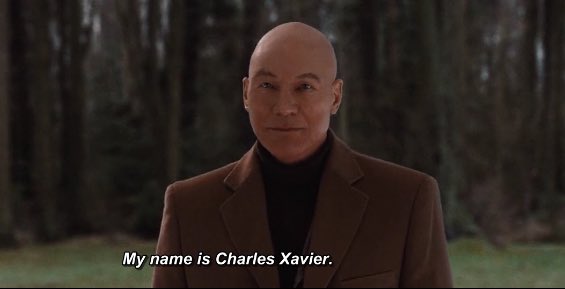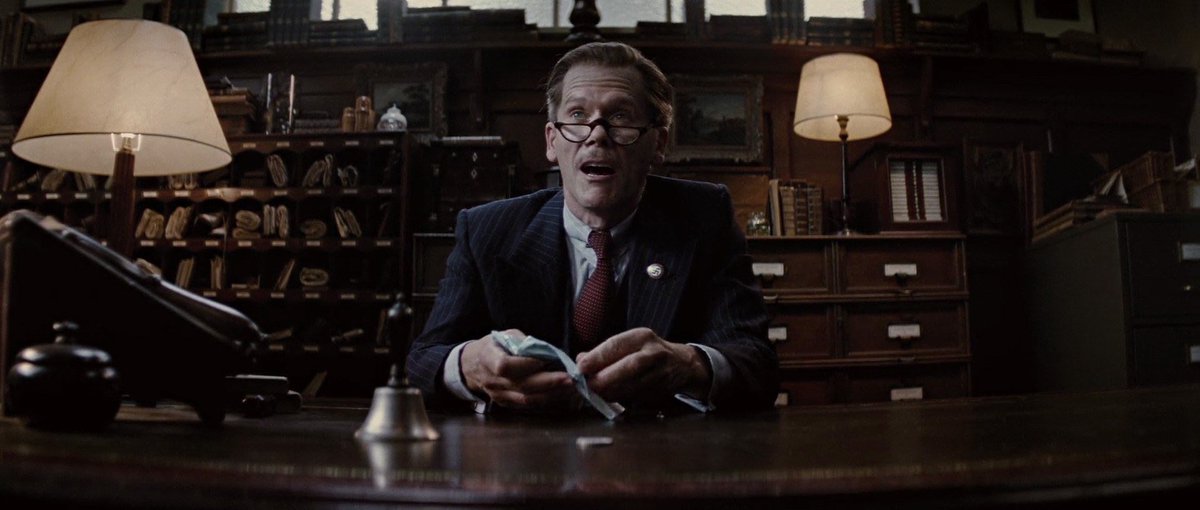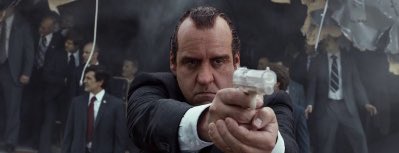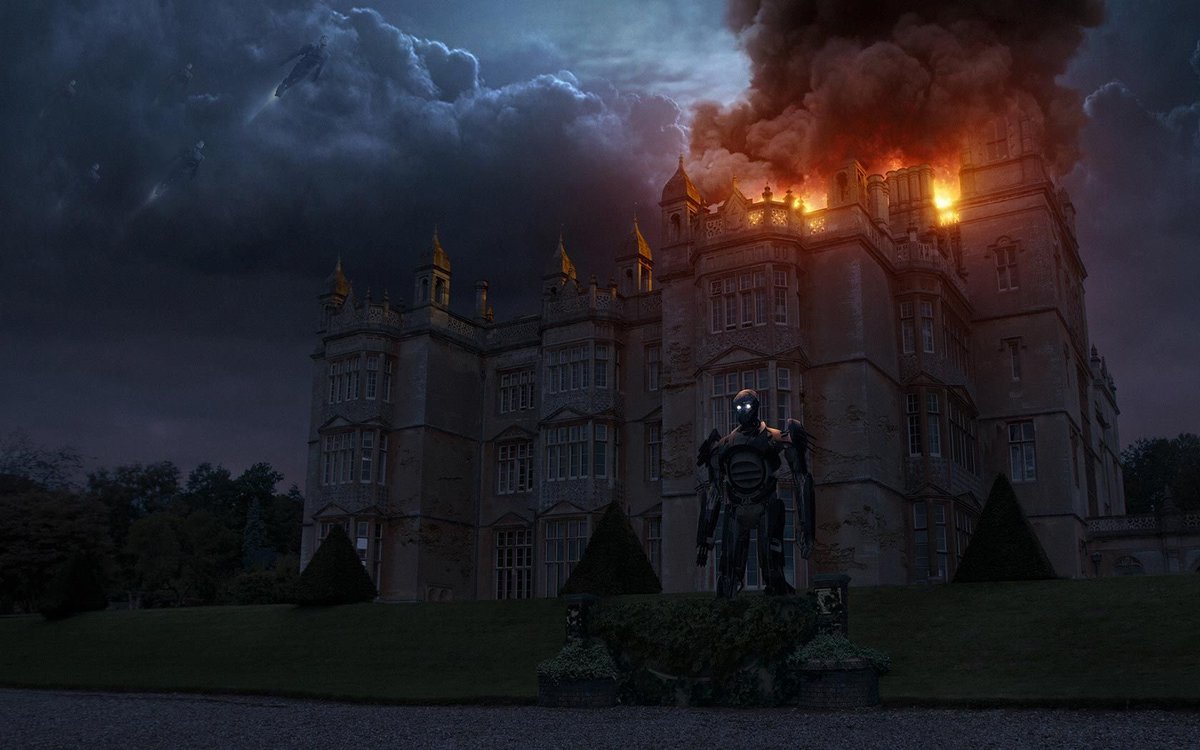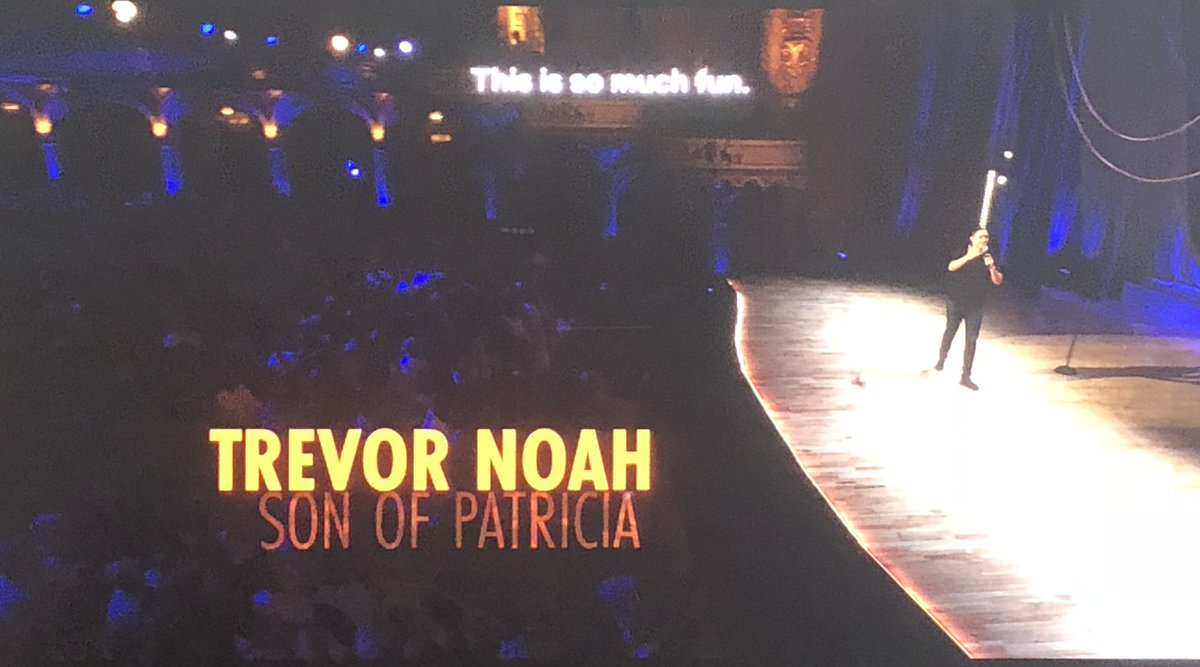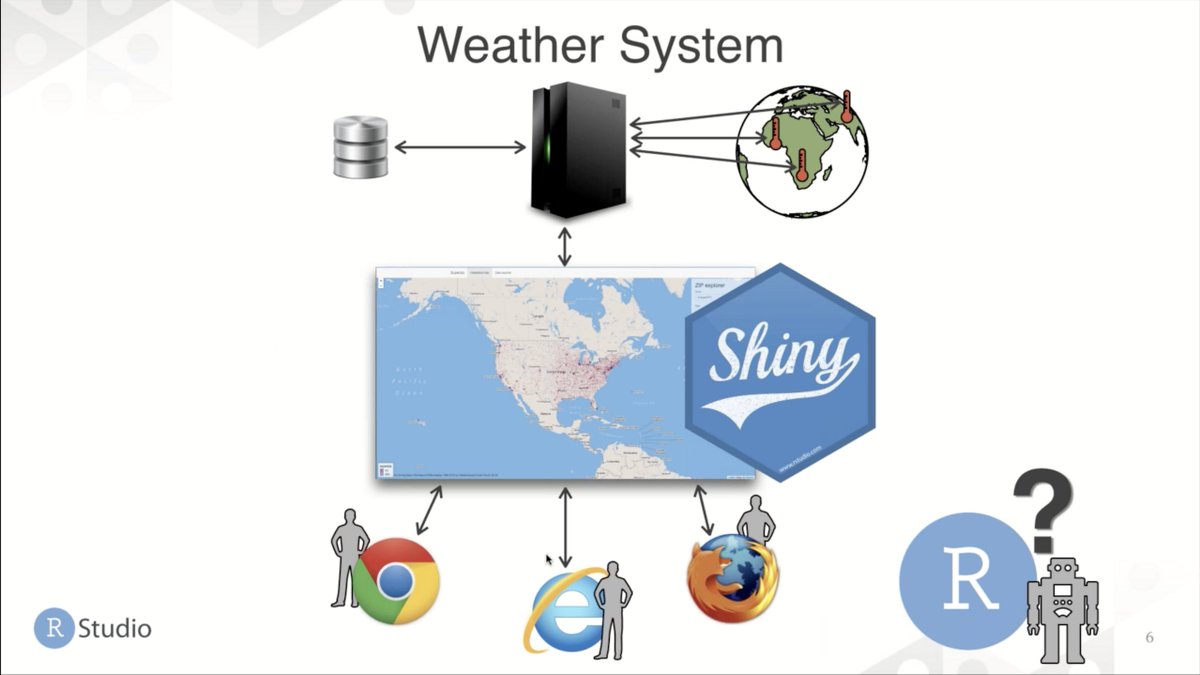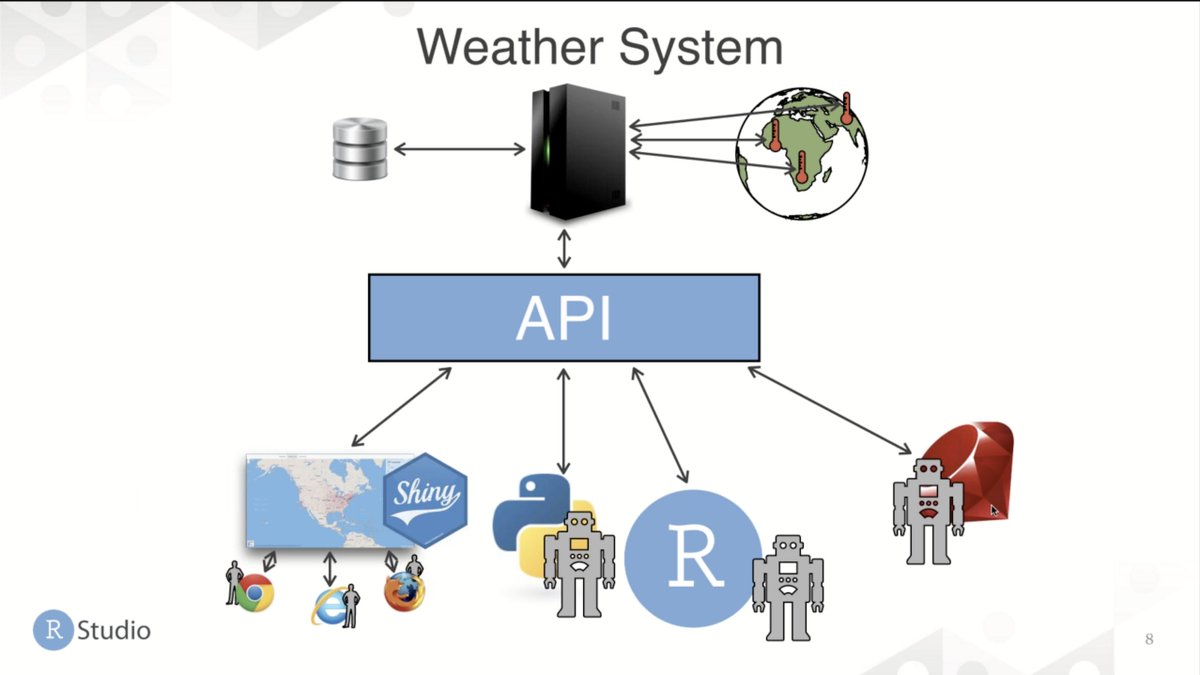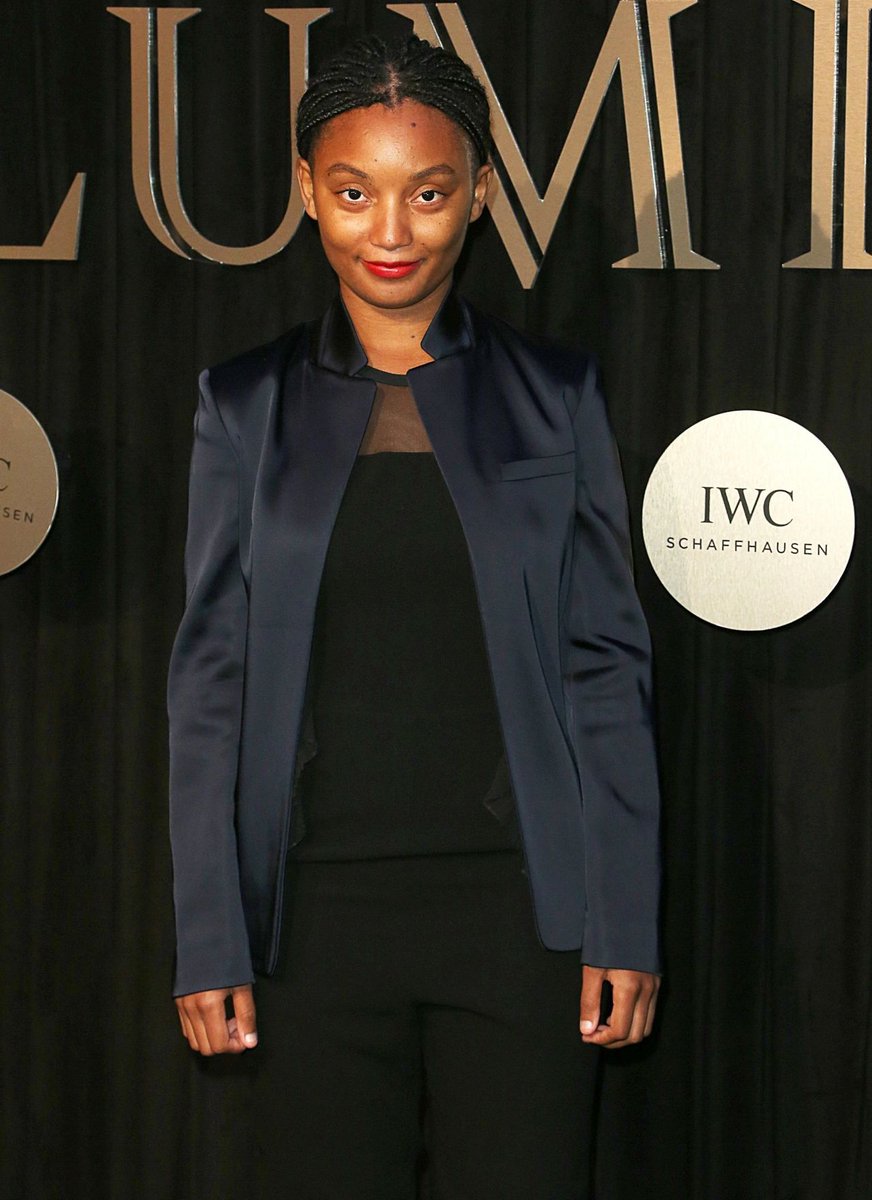A film franchise with a complicated, but surprisingly important legacy.
Although there were obviously superhero films before, and films like “Blade” are often overlooked, “X-Men” is ground zero for the modern superhero boom.
This informs the films’ legacy, although it seems under-discussed compared to the emergence of the MCU.
theatlantic.com/magazine/archi…
While it seems like the cultural mood has shifted on the “X-Men” films, it’s strange to me that this isn’t the catalyst.
theatlantic.com/entertainment/…
A fifty million dollar budget, a one hundred minute runtime, and abundance of exposition accounting for things modern audiences take for granted.
It feels almost like a “beta” release for the superhero blockbuster.
The film’s setting is still synopsised as “the near future” and Patrick Stewart’s narration (and Patrick Stewart himself) contextualise it as a sci-fi film.
I actually don’t mind this (almost Claremontian) excessive clarity.
I love the Burton “Batman”, Donner “Superman” and the first two “Blade” movies, but “X-Men” takes its characters more seriously.
“When they come out... does it hurt?”
“Every time.”
A beautiful moment.
It’s similar to the ironic deadpan snarking we’ve come to associate with MCU films, but not quite as self-satisfied.
The twist works in the context of the film, of the source material and ESPECIALLY of the films that follow.
All of which suggest the audience should focus on Logan.
(There is nice symmetry in “Logan” in how the film parallels the Logan/Laura relationship with the Logan/Rogue one from “X-Men.”)
The soap opera Logan/Jean/Scott triangle is pure comic book, for example.
And the film is unapologetic about that, committing whole hog to a scheme that’s comparable to Lex Luthor’s landgrab in “Superman.”
Again, I love the Donner “Superman” or Burton “Batman” movies, but Stewart and McKellen raise the bar on the types of performances in the live action superhero genre.
McKellen treats Magneto as a real person.
“If I had to do that, then she wouldn’t be my girl.”
The “X-Men” movies have no real idea how to use Cyclops, but I dig his straight laced stuck-in-the-mud western hero persona here.
To the surprise of nobody who knows me.
Cyclops typifies that persona very well. He’s a standard hero. Just a kinda dull one.
#CaptainMarvel
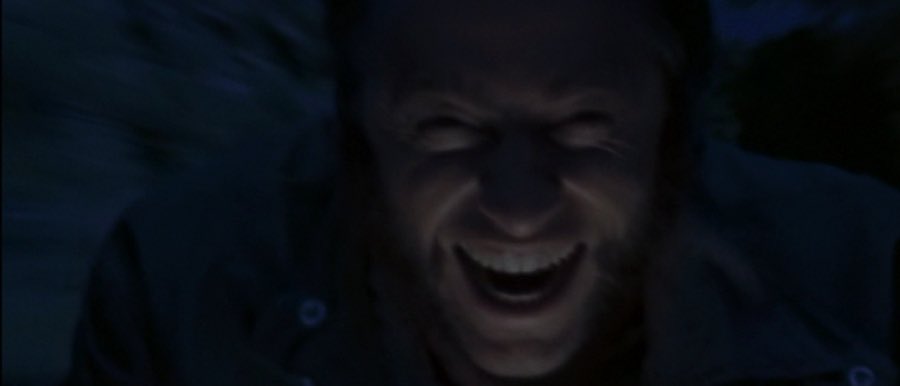
The film has an ensemble roughly equivalent to that of the first “Avengers” movie. Twelve years early.
However, while it gives Storm and Cyclops good scenes, it struggles to give them arcs.
There’s a short scene where he kills guards on Ellis Island by hopping on them in the style of Mario.
Ridiculous in a comic book fashion.
Again, it’s odd that the film arrived in July 2000.
The film prefigures a lot of what would follow, but not everything. And so it feels out of place slightly, out of time. A genre uncanny valley.
But again, the synchronicity is weird and uncanny. Only two of Whedon’s lines made it into the finished film.
Almost, but not quite.
The music soars in a way that an MCU film would never allow. The characters cradle each other melodramatically.
There is heightened, emotive ANGST.
It’s perhaps the film in the franchise most impacted by revelations about Bryan Singer.
It’s harder to separate Singer from the film than other “X-Men” films, as it’s both the one most about young men and most explicit in its metaphors about sexuality.
It’s a staggeringly confident piece of work, and one that feels much more sure of what it is than the original “X-Men.”
It’s more confident, more comfortable, more assured. It looks and feels a lot more like a modern blockbuster.
“X-Men II” feels like a model more confidently built to the outline that the original “X-Men” traced.
(In some ways, it’s a reminder of the under-acknowledged influence of “The Matrix” on the form of modern superhero blockbusters.)
But this works thematically, showcasing the idea that Xavier has trained his children to succeed without him. He has succeeded as a parent.
I much prefer the approach that “First Class” takes to Charles Xavier, but we’ll get to that, if there’s time.
Again, Singer casts an uncomfortably long shadow.)
So it’s no surprise that “X-Men II” feels in step with the mood of the moment, down to casting Stryker as an embodiment of the military-industrial complex.
Interestingly, “X-Men II” plays Xavier as a hangover of sixties liberalism.
The nineties was haunted by anxieties concerning the legacy of sixties liberalism; “Forest Gump” is perhaps the most explicit example.
(Magneto even helpfully articulates the contrast by comparing Xavier’s attempted redemption of Wolverine to his failure with Jason Stryker.)
In the comic that inspired the film, Stryker was a preacher; maybe he would be today. But in 2003, it made sense to cast him as a soldier.
It’s visceral, atmospheric, emotive and effective. It still works today.
It’s weird, macabre, goofy. And it is arguably more comic booky than anything in the majority of Marvel Cinematic Universe films.
The splitting of the team into smaller groups, scattering them to the wind to expand the scope of the story, is from the “Empire Strikes Back” template.
It makes “X-Men II” feel much bigger than “X-Men” did.
Alan Cumming’s Nightcrawler is great, despite his small role. Although it still seems like the films have no idea what to do with Storm.
In what feels like a conscious and effective updating of the franchise’s history as a metaphor for race.
But “X-Men II” makes a strong argument for the franchise working better as a metaphor for sexuality than for race.
A lot of Jean’s role in “X-Men II” is set-up for a hypothetical sequel, rather than existing for its own purpose.
Because “X-Men III” has no idea what to do with Jean, it casts a weird shadow over her otherwise solid arc in “X-Men II.”
“Because we shouldn’t have to.”
Despite how complicated the plot to “X-Men II” becomes, it cannily remains focused on its core thematic dynamics.
It never loses sight of its core ideas, which keeps it steady despite its scope.
I love catty Magneto. Indeed, McKellen spends an extended stretch in the middle of “X-Men II” just being sassy and condescending to the rest of the cast.
It’s brilliant.
It allows for a bit of tonal variation without unbalancing the movie, casting Magneto and Mystique as showy, snarky and vampy foils to the more earnest heroes and villains.
It initially appears like “X-Men II” is setting Stryker up as an opposite to Xavier, but the climax reveals Magneto as the true opposite of Stryker.
Magneto conspires to just reverse Stryker’s genocidal plan.
It’s the franchise’a purest argument for Xavier’s heroism.
It is very much the franchise’s ur-text, more than the original “X-Men.” Which makes sense, as it’s much more successful.
“Origins” extends a few disjointed flashbacks to a film. Which means so does “Deadpool.”
“First Class” shifts the emphasis in its homo sapien history lesson. “DoFP” involves Stryker. Even “Apocalypse” goes back to Alkali Lake.
The need to include Magneto in EVERY “X-Men” movie, the centring of the mythology on Logan, needing every film to be about mutant/human prejudice.
Just because things are good ideas in particular cases doesn’t mean they’re ALWAYS good ideas.
Bryan Singer’s gone. Now surely Fox can hire a director who isn’t a sex pest.
There have to lots of great options out there, right?
Brett Ratner. I’m sure he’s a perfectly solid gu—
telegraph.co.uk/films/2018/04/…
Notably, the film contains two pre-credit teasers from two different plots; Jean and Angel. Pick one of the two.
It’s an ill-judged moment.
After all, the entire “Cure” storyline is built around contemporary concepts like “conversion therapy”, which should be easy to build on.
Angel implicitly ties the whole “cure” storyline to a broader religious context, but “X-Men III” refuses to articulate its politics as clearly as “X-Men II.”
There’s a reason why Rogue might want a cure. There’s no real-life justification for “conversion therapy.”
This means the “Phoenix” plot is simplified down to “woman gets too much power, needs to be killed.”
Which is not ideal.
However, the film doubles down on the very simplistic moral of “absolute power corrupting absolutely.”
((Which paradoxically helps make the “cure” plot seem more reasonable.))
The edit is chopping, jarring, abrupt. Ratner doesn’t give anything room to breath, even WITHIN his action scenes.
It’s an ethos of “more!”
More characters, more plot, more stakes, more spectacle; all crammed into a tightly-defined space with no room to breath.
It’s not too hard to imagine a version of “X-Men IIl” with an extra hour added on to it; an even more unholy mess.
Kelsey Grammar is great casting as Beast. (Being honest, even just his voice; it’s telling he was brought back for “DoFP.”)
But I especially love how easily and casually he abandons Mystique when she’s depowered.
This speaks to what “X-Men III” thinks is important.
It’s the comic book concept of “the illusion of change”, as Charles is back soon enough.
“X-Men III” seems ahead of the curve in that regard.
“X-Men III” prefigures a lot of the modern fan service and pandering we expect from modern studio blockbusters.
Should I watch “X-Men: Origins - Wolverine” or jump straight to “X-Men: First Class”, knowing that I may not get through this binge if I do the Wolverine films?
I find it a fascinating misfire, a bizarre curiousity that has more in common with contemporary superhero blockbusters than many of its detractors would concede.
“X-Men III” is probably a better film than “Spider-Man III”, but a less interesting one.
#NowWatching “X-Men Origins: Wolverine.”
So that historical montage opening credits sequence is pretty great, eh?
I mean, this is nominally a Wolverine origin story, and they can’t help but cram it to the gills with unnecessary super-people.
It’s absurdly cluttered.
And using stock clichés to fill out the gaps created by stretching it to an hour and fifty minutes.
Why did Wolverine enlist in Weapon X? Because his girlfriend died. It’s lazy.
In “X-Men II”, Stryker suggested Logan was a monster before Weapon X, meaning that his redemption arc has weight.
But “Origins” insists he always had a conscience.
There’s a weird extended “Superman” homage in the middle of “X-Men: Origins - Wolverine”, which makes no damn sense.
He deserved a much better film.
Which thematically muddles his story somewhat.
🎵Cool guys don’t look at explosions...🎶
It’s very, very silly, but I’m kinda on board with it.
Well, at the very least they’ve given up on the latter.
But not nearly enough.
“X-Men: Origins - Wolverine” somehow decides to deliver this motivation entirely through one clumsy exposition-driven scene with a minor character.
Which is the best “X-Men” movie. I will not be taking questions at this time.
In part because I’m about to have dinner.
The best thing that “X-Men: First Class” has going for it is that it understands how creepy Charles Xavier is.
Is eschews the simplistic heroic portrayal of Charles in “X-Men” and “X-Men II.”
Charles has the wealth and the luxury of avoiding the sort of prejudice that people like Erik and Raven experience firsthand.
“X-Men: First Class” renders this subtext explicit with the Xavier family mansion.
It’s no surprise that Charles’ stepfather built a bomb shelter. Charles is building a shelter for human extinction.
“X-Men II” opened with an argument that cohabitation between two subspecies was possible.
Charles’ theses in “First Class” argues that one subspecies must eventually replace the other.
Millar’s cynical portrayal of Charles Xavier as a manipulative self-centred egotist was the highlight of an otherwise messy run.
He’s effectively preparing mutantkind to wait mankind out.
“First Class” implies that Erik understands Charles better than anybody else.
They both believe in mutant supremacy, in different forms.
Notably, he unthinkingly “outs” Hank at his job and is perfectly willing to help the CIA identify and track mutants as long as it suits him.
((Even if he wasn’t using mind control, he’s likely using mind reading. And even if he isn’t, he’s still a professor hitting on drunken coeds.))
This is a dude with mind control powers who trains a bunch of kids to be his own private militia.
Plus, it makes his relationship with Magneto more interesting.
Fassbender has been a lot less efficiently served by his scripts than McKellen, but I don’t think McKellen was ever *quite* as good as Fassbender is here.
I’m fond of this cross-cut tracking shot, cutting between the coin going through Shaw’s head and Charles experiencing the pain of that coin going through his head. Some great work from Vaughn.
I am very fond of it, for all its flaws.
But time gets away from us.
The “X-Men” franchise doing a gigantic crossover event film, but realizing that they have a finite number of characters.
So what do we do? We bring back all the old actors for one big hurrah!
At its heart, the film is about reconciling past and future with one another, which gives it a strange air of finality.
This arguably makes a great deal more sense than jumping directly from “X-Men: First Class” to this.
Similarly, there’s a nice symmetry in Logan becoming a mentor to Charles, reflecting how much the character has grown and evolved.
(Similar to Jason Aaron’s superb “Wolverine and the X-Men.”)
It feels like the logical conclusion of the “feared and hated” arc that has run through the four films to date.
What do the “X-Men” films become with all these ideas taken to their logical conclusion? What’s next?
To be fair, this is not a problem with “Days of Future Past.”))
Most notably the manner in which the good fortune of casting Michael Fassbender and Jennifer Lawrence distorts the flow of the prequel films.
Lawrence and Fassbender are stars, so folding them into “Apocalypse” and “Dark Phoenix” is a necessity, even if Magneto and Mystique don’t fit.
But the gravity of Fassbender and Lawrence is too strong. Even in “Days of Future Past”, they seem squeezed in.
The sense of lost idealism after all the tumult and potential of the sixties, disillusionment and cynicism creeping into discourse.
(And it helps that it echoes the 2010s, when the film was released.)
In case you didn’t get that Charles is not as nice as he presents himself.
And, given that a different version of Quicksilver appeared in “Age of Ultron” a year later, they are a handy illustration of the differences between the X-Men films and the Marvel Cinematic Universe.
The MCU has nothing as fun as “... too much iron in your blood” or “Time in a Bottle.”
The sequence of him trying to bluff the Pentagon guards without his powers is hilarious.
The anxiety, the disillusionment; Vietnam, the Pentagon, the Paris Summit.
Again, it’s a shame so few superhero films are period pieces.
“You didn't raise her, you grew up with her. She couldn't stay a girl forever, that's why she left.”
“She left because you got inside her head.”
“That's not my power. She made a choice.”
Charles confronts his attitude to women.
Magneto turning on Raven; Magneto dragging Raven along the ground using the bullet; the use of stylised camcorder footage intercut with the action; Wolverine’s “really bad acid trip.”
All happening simultaneously.
At its core, “Days of Future Past” remains a simple story about one woman’s choice and decision.
This is perhaps an overly simplistic approach to the arc of history and to the franchise’s broader themes about oppression and systemic violence.
But it tethers an otherwise messy, complicated film in a simple conflict.
But while “Endgame” makes the past subject to the whims of the present, “Days of Future Past” understands that the future belongs to the young.
Again, a very seventies (and very contemporary) theme.
Yoda’s advice to Luke, “We are what they grow beyond.”
They idea that the older generation’s primary responsibility is to help ensure their children no longer need them.
It gives the older generation something to do. It also very effectively cross-cuts between younger Magneto and his older self, underscoring his growth and evolution.
This isn’t quite the culmination of the MCU-ification of the “X-Men” films, as “Apocalypse” is just around the corner.
However, it comes close. A climax on a blockbuster scale just to have one.
“Days of Future Past” doesn’t go as far as many, or even most, but it goes a little too far.
It’s a shame, as there’s a lot of good stuff involving Magneto earlier in the film and “First Class” is pretty much the best Magneto story you could ask for.
It features some genuinely inventive use of superpower physics, while remaining easy to follow. That’s no mean feat.
#NowWatching “X-Men: Apocalypse.”
Which is strange. Although released a year earlier, and although this is only two years ago, I tend to think of “Apocalypse” as coming after “Logan”, instead of vice versa.
The past five films have all been about anti-mutant prejudice. The well is dry after sixteen years.
So... what else do you have?
The “X-Men” are one of the most versatile comic franchises out there; time travel, parallel worlds, space adventures.
But the films had never really branched out.
And almost a decade and a half into the franchise. As a result, leaving “Apocalypse” in a bit of a bind.
McAvou’s opening monologue is a bit much, but the ancient Egyptian setting is different enough to suggest a fresh start.
It’s a literal and metaphorical broadening of the franchise’s world.
Religion! Art! ... Culture!? ... Fascism!
It’s weird, but “Apocalypse” needs to be weird.
“First Class” and “Days of Future Past” have a large enough cast, so it’s absurd that “Apocalypse” tries to heap a new cast on top of them.
And, to be frank, many of the younger cast members are... not great.
“Apocalypse” is introducing these actors, to quote “Deadpool II”, to “carry the franchise another ten to twenty years.”
It’s a cynical exercise, subsequently revealed as a tragic one. The franchise won’t last that long.
Despite the fact that they have no place in this narrative, because they’re Fassbender and Lawrence.
But, understandably following “Days of Future Past”, “Apocalypse” doesn’t want to do that.
He’s a stock omnicidal threat rather than an ideological menace. He’s pretty much similar to your stock MCU baddie; Malekith, Kaecelius, Ronan, Ego, etc.
“Apocalypse” answers, “Let’s make a pretty standard superhero blockbuster with this intellectual property.”
“And for you?”
“It didn't really matter what's best for me.”
One of the creepier aspects of “Apocalypse” is how it completely misunderstands the characterisation of Charles in “First Class” and “Days of Future Past.”
In “First Class”, his wiping of Moira’s mind was selfish and pervy. However, “Apocalypse” tries to paint it as self-sacrifice.
It seemed very much like the “X-Men” franchise luxuriating in the bloated blockbuster aesthetic that the original “X-Men” had helped to usher into existence.
As a result, I am a lot less likely to give “Apocalypse” that benefit of the doubt today.
Most notably - and inexplicably - “Apocalypse” is the longest “X-Men” film (with the exception of the “Rogue Cut”) by a considerable distance.
Despite being fairly generic.
“Apocalypse” has nothing to say about the eighties, beyond superficial trappings and soundtrack choices. The setting is empty, vapid.
Which is perhaps metacommentary on the decade.
Magneto has been the focal point of enough “X-Men” movies his character arc seems exhausted.
His destruction of the concentration camp should be powerful and emotive, but instead seems trite and ridiculous.
Even Quicksilver is still living in his mother’s basement.
But they exist purely to serve as leverage to reset the character to factory default settings of “vengeful murderous monster.”
“Apocalypse” needs more of that sort of energy, and it’s a shame so much of it is concentrated in the second act.
We’re back in “Weapon X”, in a sequence that exists largely to shoehorn in Hugh Jackman and completely rewrite “X-Men: Origins - Wolverine.”
Much as “X-Men” landed in the uncanny valley of “War on Terror” blockbusters and “X-Men III” landed in the uncanny valley of crowded superhero blockbusters.
In “Apocalypse”, the uncanny quality comes from clumsy imitation of the franchises that have long surpassed it.
This is revising a seven-year-old failure, featuring an actor who would be done with the franchise the following year.
Jackman’s even wearing the costume from the comic.
But “Apocalypse” is clumsily groping at the tropes of the MCU without the in-house skill.
Notably, “Apocalypse” is the first “X-Men” movie to feature urban devastation on the scale of an MCU film.
(Which was a heavy part of the marketing. “You’ll finally get to see McAvoy bald!” as a selling point.)
“Apocalypse” is a very good indication of what an MCU “X-Men” movie would look like. Minimal politics, lots of CGI and fanservice.
At the time, I thought it a curio. Now I worry it’s a harbinger.
Here’s my review of “X-Men”, for example.
boxd.it/J6nlX
These entries are a bit longer than usual.
boxd.it/J7P7B
Reflecting the concerns of contemporary America, its anxieties have shifted from the military-industrial complex.
“Not the car!”
It was pure unadulterated American capitalism. The soft drinks they consumed, the processed food they ate.
The abandoned industrial space that serves as Charles’ retirement home, the shift work to pay for essential medication, the shiny casinos, the automation replacing drivers and works.
Mutantkind was rendered redundant. Man may soon follow.
It’s implied his plucked it from the physic air. Of course Taco Bell survives the apocalypse.
That was particularly true after “Logan” came out, the spectre of a Disney merger on the horizon to effectively restructure the intellectual property.
“Logan” has a funereal tone, that rather effectively mirrors the similar sense of loss in “Days of Future Past.”
There is a sense of the “X-Men” Cinematic Universe as a spent force. This is the end of the line.
This is a decade of cynicism, disillusionment, recession; an era where dreams have been not so much shattered as eroded.
The last two films in the franchise were “Deadpool 2” and “Logan.” Skipping “Apocalypse”, the third of the last four was “Days of Future Past.”
That’s an impressive track record.
Notably, the film makes a point to emphasise how crap Pierce is as a villain. He’s repeatedly humiliated and embarrassed.
However, the fact he’s a match for Logan underscores how far the hero has fallen.
Which is welcome and refreshing after the numbing superhero spectacle of “Apocalypse.”
The stakes of “Logan” are more manageable, more comprehensible.
As with the film’s anxieties about late capitalism, this taps into contemporary fears about things like climate change.
What if the world already ended, but we haven’t realised?
This is not an anxiety unique to this cultural moment. It was quite common in late sixties and early seventies cinema.
This just a more modern take on the idea.
“Logan” is just one of the strongest, most successful and best examples.
Zander Rice is an update of William Stryker for the second decade of the twenty-first century.
Unlike Stryker, Rice is not a soldier. He is a market force.
“This is business.”
